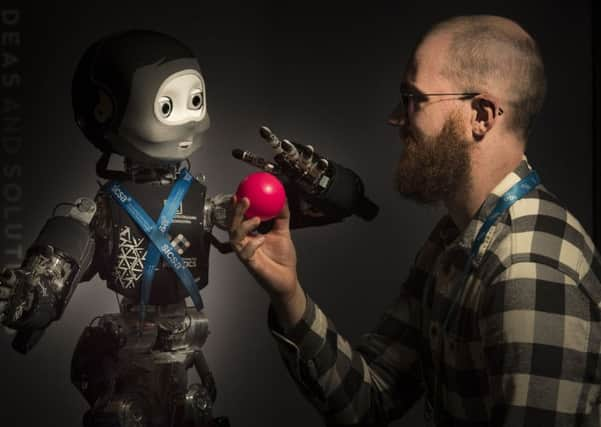Suzie Bowman: Let's lead this fourth industrial revolution


It’s widely acknowledged that we are in the midst of a fourth industrial revolution and this is at the forefront of many leading economies and is a focus for our work at Skills Development Scotland. Will robots take our jobs? Will artificial intelligence decimate existing industries?
Rather than exerting all of our energy on this debate and trying to predict the unknown, we have an opportunity to think about, and plan for, a future that we want.
Advertisement
Hide AdAdvertisement
Hide AdAt SDS, in collaboration with the Centre for Work-based Learning, we are taking this opportunity to consider the skills that will be most valuable in this future. Our vision is one that makes the most of innate human capability in order to drive a competitive Scottish economy as well as support our citizens’ wellbeing.
The fourth industrial revolution is driven, as in previous industrial revolutions, by technological disrupters. But this time it is not one big change that we will adjust to and then become the new “normal”. We are moving into a period of exponential change. And the technological changes are met by other large scale societal and demographic shifts such as further globalisation, an ageing population and increasing diversity within the workforce.
We can’t deny that artificial intelligence, big data and robotics has, and will continue to have, immense impact. Our ability to keep up and navigate this constant change is already being tested. We need to develop the skills and capabilities to continue to learn and thrive in this environment of constant change. We also need to consider how we can make best use of what makes us human in the first place. As we have moved from physical to mental work in the previous industrial revolution, we now have the opportunity, and an impetus, to cultivate our emotional intelligence. And to build a more productive economy that drives its own change we need to develop a creative and innovative workforce.
So how do we do this?
We know non-technical skills can’t be learned context-free, which is why we believe work-based learning will play a key part in a skills system that sets our citizens up for the future. A commitment to good quality learning in the workplace and a focus on talent pipelines are recognised as supportive in the development and maintenance of these skills for the future in individuals, but also profit, productivity, growth and transformation in firms.
Work-based learning and apprenticeships will play a key role in a responsive and adaptive skills system to ensure Scottish businesses have the right individuals needed to drive innovation.
SDS has worked with industry, education and partners to develop the range of apprenticeship on offer to meet future skills demands.
Scotland has recently been described as at a crossroads in terms of the unknowns that lie ahead with both Brexit and Indyref, but we are also at a crossroads in our response to industrial change.
Will we drive a productive economy by being leaders in the fourth industrial revolution, or will we stand back and allow ourselves to be swept along by the change?
Suzie Bowman Senior Service Designer, Skills Development Scotland